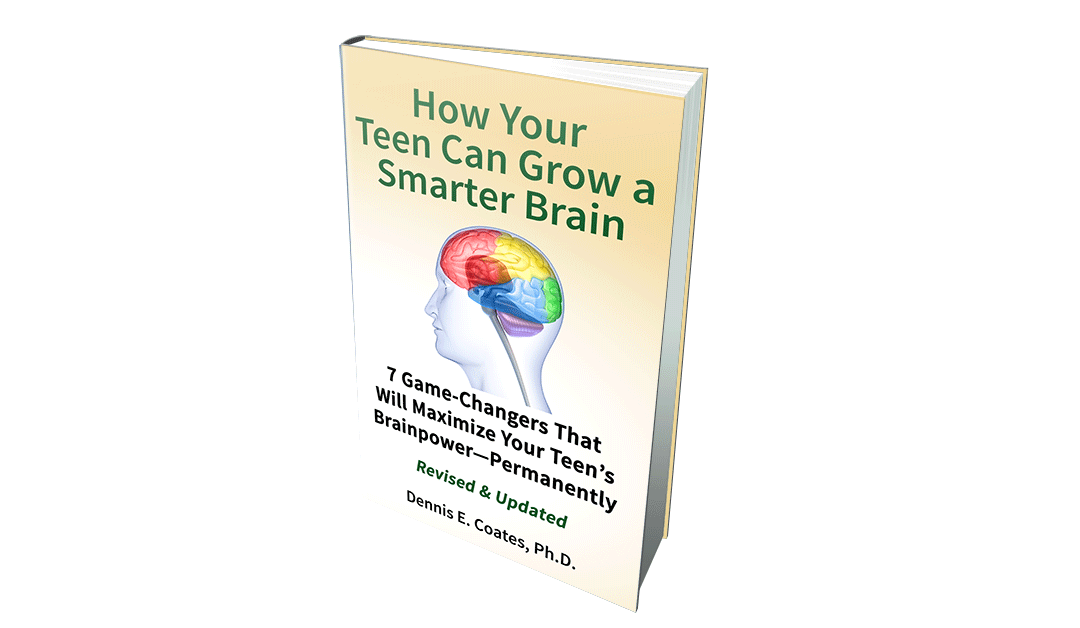
by Dennis Coates | Adolescent Brain, Behavior Change, Parent-child Communication, Parenting Books
People sometimes ask me, “What’s your favorite book about parenting?” It’s a good question, because there are hundreds of parenting books to choose from. But for me, it’s not a hard question. At the top of my list of favorites is Get the...

by Dennis Coates | Adolescence, Adolescent Brain, Behavior Change, Critical Thinking, Parenting Books
As you may have heard, my new book, How Your Teen Can Grow a Smarter Brain, is now available on Amazon. Several people have commented on the title, that “growing a smarter brain” is a clever metaphor for the process of building vital thinking skills. I...

by Dennis Coates | Adolescence, Adolescent Brain, Health & Nutrition, Self-Esteem, Teen Culture, Teen Suicide
First, a new word: “esports.” Makes you think that playing video games is a legitimate sport, something like poker, which is featured on ESPN and in the sports sections of most newspapers. So, mom and dad, maybe it’s ok, right? Dozens of small...

by Dennis Coates | Adolescent Brain, Parenting Books, Uncategorized
A “feral child” is one who spent a significant part of early childhood isolated from civilization, often raised by wild animals. A consistent theme of these stories is that the foundlings had no language or social skills, which are normally learned early...

by Dennis Coates | Adolescence, Adolescent Brain, Health & Nutrition, Parenting, Teen Culture, Teen Success
In my posts, “Video Game Addiction and Brain Damage” and “Teen Smartphones and Social Networking – Buyer Beware” I described potential threats to normal teen brain development. If you read these articles, you know there are serious...

by Dennis Coates | Adolescence, Adolescent Brain, Alcohol, Critical Thinking, Drugs, Education, Fitness, Health & Nutrition, Parent-child Communication, Parenting, Peer Pressure, Personal Strength, Rebellion, Self-Esteem, Teen Culture, Teen Sex, Teen Success
One of the underlying themes of my writing is that parents of teens need to be realistic. But being realistic doesn’t necessarily imply some kind of worst-case scenario. Because realistically, lots of really wonderful things can happen during adolescence. For...







